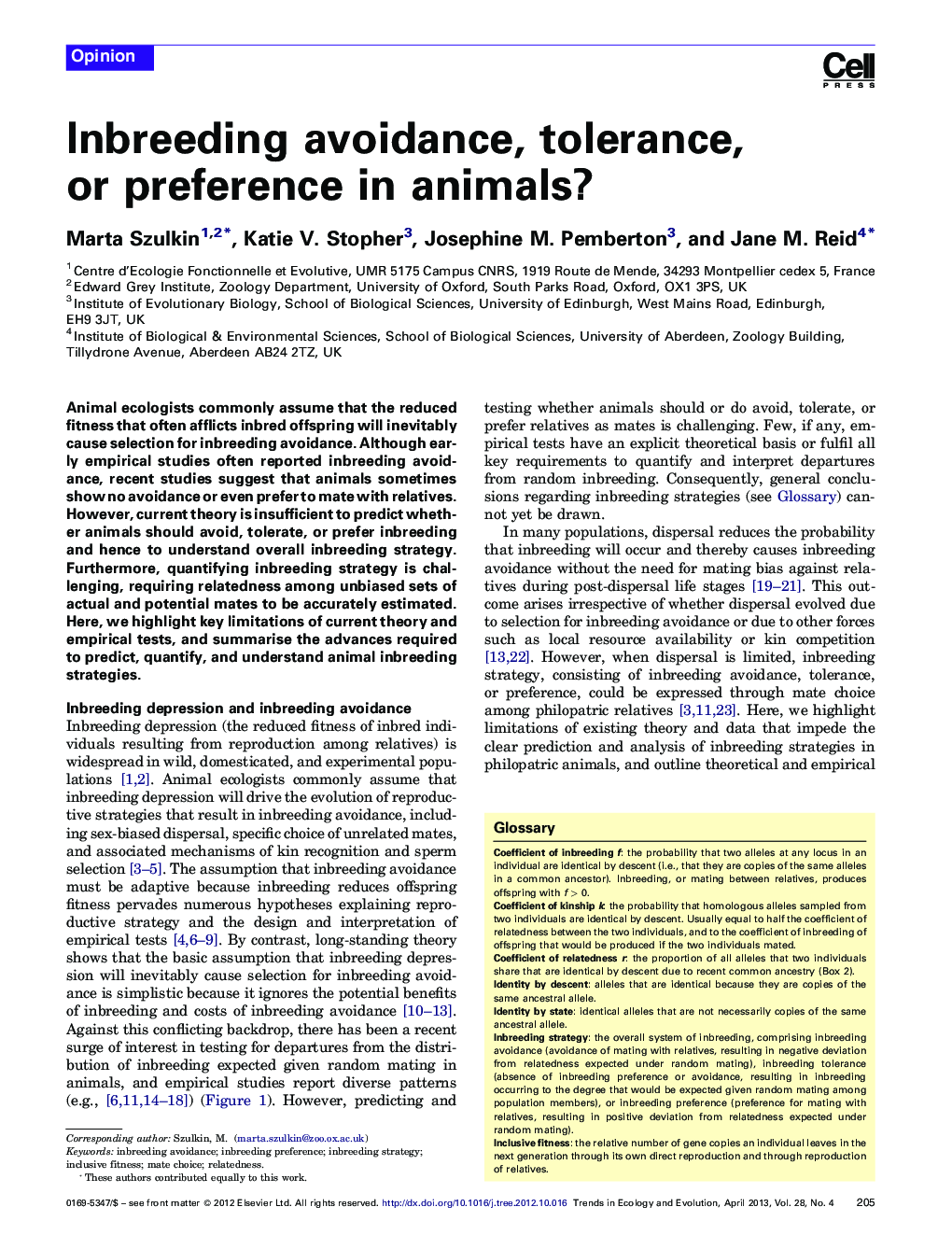| Article ID | Journal | Published Year | Pages | File Type |
|---|---|---|---|---|
| 142720 | Trends in Ecology & Evolution | 2013 | 7 Pages |
Animal ecologists commonly assume that the reduced fitness that often afflicts inbred offspring will inevitably cause selection for inbreeding avoidance. Although early empirical studies often reported inbreeding avoidance, recent studies suggest that animals sometimes show no avoidance or even prefer to mate with relatives. However, current theory is insufficient to predict whether animals should avoid, tolerate, or prefer inbreeding and hence to understand overall inbreeding strategy. Furthermore, quantifying inbreeding strategy is challenging, requiring relatedness among unbiased sets of actual and potential mates to be accurately estimated. Here, we highlight key limitations of current theory and empirical tests, and summarise the advances required to predict, quantify, and understand animal inbreeding strategies.
► Inbreeding depression is often assumed to cause selection for inbreeding avoidance. ► Animals sometimes tolerate inbreeding, or even prefer to mate with relatives. ► Existing theory and data do not adequately predict or quantify inbreeding strategy. ► We specify that multiple theoretical and empirical advances are now required.
